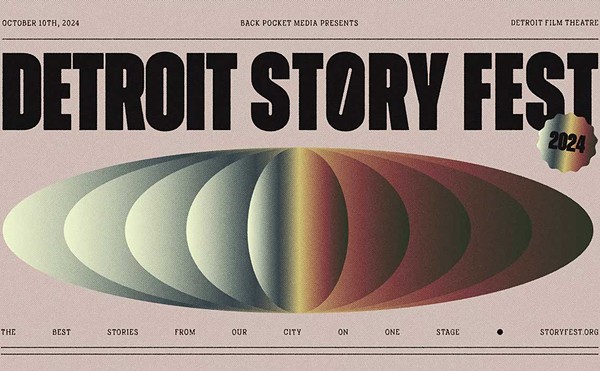I guess we can blame Al Gore for opening the eco-doc floodgates. You remember An Inconvenient Truth, don't you? It was back in 2006 when, for 15 minutes, it seemed like people in this country might actually start doing something to slow the assault on our ever-eroding environment. But then the economy went south and people started listening to teary-eyed windbag Glenn Beck weigh in on health care reform, and 'ol Al and his Nobel Prize got relegated to the dustbin of pop culture history. Like Hands Across America and Farm Aid, global warming became another victim of our cultural ADD.
And still the cinematic calls to action hit the multiplex every nine months or so then promptly disappear. Which will probably be the fate of Robert Stone's gorgeous and engaging Earth Days. It'll appeal to a small group of believers, make the casually curious feel guilty and powerless, and be ignored by the overwhelming masses. Oh, and it'll also let snide right-wing hack reviewers like Kyle Smith at the New York Post accuse it of being the doom-mongering cries of washed-up hippies.
Which is a real shame, because, along with the eye-opening archival footage (see DDT sprayed onto kids at the public pool) and alarming facts (learn that strontium-90, an isotope that didn't exist 100 years ago, is now found in every living human) is an honest appraisal of the U.S. environmental movement — warts and all. Yeah, there's a bit of gloom and doom prognostication and a handful of too-earnest hippies, but once Stone's straight-faced documentary gets past its opening generalities it offers an intriguing look at how some unlikely historical events — Jacques Cousteau's documentaries, Rachel Carson's Silent Spring, the space race — became the rallying points for the modern green movement.
In particular, Stone's observation that the people and politics behind the first Earth Day celebration were mostly nonpartisan is an all-but-forgotten fact. I doubt that audiences will be surprised to learn that many Republicans at first saw it as a core conservative value. After all, Richard Nixon signed the Endangered Species Act into law. Unfortunately, anti-establishment groups made it a generational wedge issue, driving away older citizens and opening the door for American corporate interests to subvert, undermine and obfuscate public eco-awareness.
Earth Days gets at the social psychology of both our rampant wastefulness and our budding environmentalism, offering up an interesting mix of boomer activists, politicians, writers and scientists — including Whole Earth Catalog editor Stewart Brand, author Paul Ehrlich and astronaut Rusty Schweickart. They are living witnesses in this earnest, wonky but still compelling historical survey, voicing both serious ideas and demonstrating the shortcomings of their early actions (Ehrlich's trivializing appearance on Carson's Tonight Show, for instance). It's a good primer for how the modern eco-movement started, how far we've come, and how much further we still have to go.
Opens Friday, Oct. 23, at the Maple Art Theatre, 4135 W. Maple Rd., Bloomfield Hills; 248-263-2111.
Jeff Meyers writes about film for Metro Times. Send comments to [email protected].





